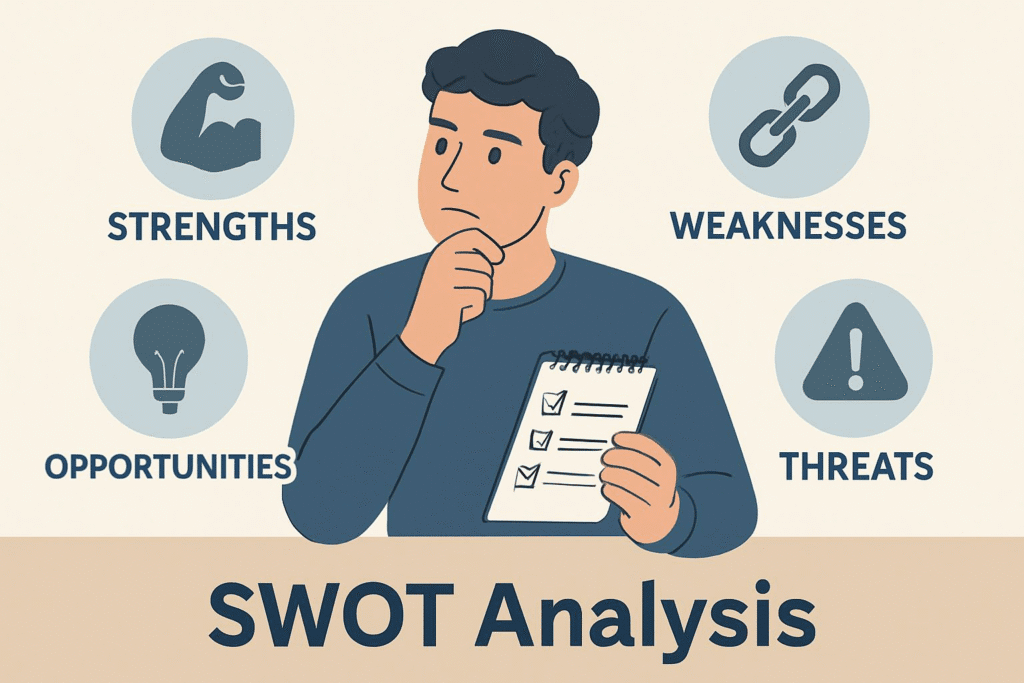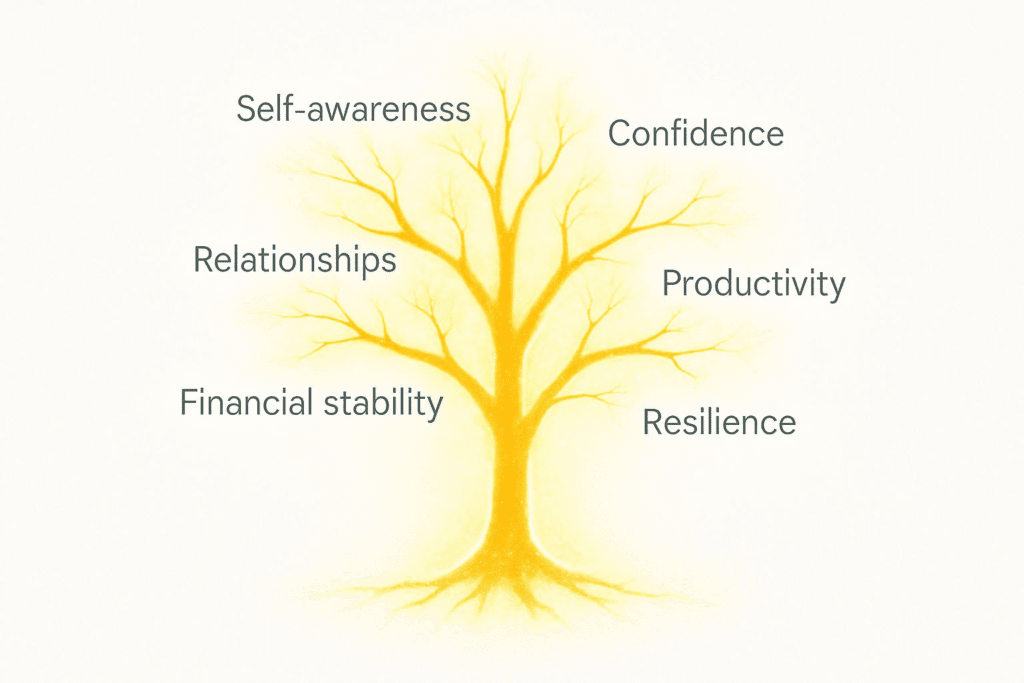Introduction

Let’s face it—personal growth isn’t just a buzzword. It’s that deep, often nagging feeling that you’re meant for more, that life could be richer, more fulfilling, more you. But knowing you want to grow is one thing; figuring out how to grow is another story entirely.
We all want to improve—whether that means becoming more confident, healthier, wiser, or more financially secure. But with so many directions to go in, it’s easy to feel overwhelmed or stuck before you even begin. That’s why having a clear, actionable plan is key. Without structure, self-improvement can quickly turn into self-frustration.
That’s where the 7 personal improvement plans come in. Think of them as your personalized roadmap—a practical guide designed to help you evolve in the areas that matter most: self-awareness, physical and mental health, relationships, finances, learning, and more.
These aren’t cookie-cutter tips or feel-good theories. They’re tried-and-true strategies you can tailor to fit your unique goals and lifestyle. Whether you’re aiming to build better habits, strengthen your personal connections, or gain more control over your future, these plans offer real steps that lead to real results.
In this post, we’ll walk through each of these 7 areas in depth, showing you exactly how to take action. By the end, you’ll have a crystal-clear strategy to start moving forward—with purpose, clarity, and momentum.
The 7 Personal Improvement Plans

Improving your life doesn’t happen by accident—it takes intention, clarity, and action. Real growth means taking a close look at different parts of your life and deciding where you want to level up. The good news? You don’t need to do it all at once. You just need a plan.
These 7 personal improvement strategies aren’t just theory—they’re actionable, flexible frameworks that can guide your transformation from the inside out. Whether you’re feeling stuck or just ready for the next version of yourself, here’s how to move forward with purpose:
1. Self-Awareness Plan: Know Yourself First
Before you can grow, you need to get honest about where you’re starting. Self-awareness is your inner compass—it helps you recognize your patterns, strengths, blind spots, and what truly matters to you.
Why it matters: Without self-awareness, you’re just guessing. With it, you’re intentional.
How to start:
- Reflect regularly in a journal—what’s working in your life and what isn’t?
- Use a simple SWOT analysis (Strengths, Weaknesses, Opportunities, Threats) to assess where you stand.
- Ask for feedback from people you trust—sometimes others see what we miss.
What you gain: Clarity. You’ll uncover what’s been holding you back and what truly deserves your energy moving forward.
2. Goal-Setting Plan: Turn Dreams into Targets
Goals give your growth direction. Without them, it’s easy to drift. The key is making goals that are not just ambitious—but doable.
Why it matters: Goals help you focus, stay motivated, and actually see results.
How to start:
- Break big goals into smaller, manageable steps.
- Use the SMART method (Specific, Measurable, Achievable, Relevant, Time-bound).
- Check in with yourself regularly—adjust the plan, not the dream.
What you gain: Momentum. You’ll start seeing progress, which fuels even more progress.
3. Skill-Building Plan: Invest in Your Abilities
If knowledge is power, then skills are your superpower. Whether it’s communication, tech, leadership, or creative problem-solving, upgrading your skillset makes you more confident and capable.
Why it matters: Your skills open doors—to new opportunities, income, and independence.
How to start:
- Pick one skill that would make a real difference in your life right now.
- Sign up for an online course, workshop, or mentorship.
- Practice consistently—growth happens outside your comfort zone.
What you gain: Competence and confidence, which can completely shift how you show up in your career and personal life.
4. Health & Wellness Plan: Fuel Your Mind and Body
You can’t pour from an empty cup. If your body is exhausted or your mind is overwhelmed, everything else suffers. Wellness isn’t a luxury—it’s your foundation.
Why it matters: When you feel better, you do better—in every area of life.
How to start:
- Move your body daily—walk, stretch, dance, lift, whatever works.
- Fuel yourself with real food and make sleep a non-negotiable.
- Take time for mental resets—meditation, breathing exercises, or even just silence.
What you gain: Energy, focus, and emotional resilience to tackle anything life throws at you.
5. Financial Plan: Take Control of Your Money
Money might not buy happiness, but it does buy freedom, stability, and peace of mind. Financial improvement means being intentional with your income—not ruled by it.
Why it matters: When your finances are in order, you free up mental space to focus on growth.
How to start:
- Track your spending and create a simple monthly budget.
- Set realistic savings goals—think emergency fund, debt payoff, or investing.
- Learn the basics of investing or passive income—start small, start smart.
What you gain: Security, independence, and the freedom to pursue what really matters to you.
6. Relationship Plan: Grow With and Through Others
No one thrives in isolation. Meaningful relationships add depth, joy, and support to your life. Investing time and energy into your connections can transform everything.
Why it matters: Strong relationships = stronger emotional health and more resilience in hard times.
How to start:
- Schedule time with loved ones and be present when you’re with them.
- Communicate openly and listen with empathy.
- Work through conflict with honesty and care.
What you gain: Deeper trust, stronger bonds, and a true sense of belonging.
7. Lifelong Learning Plan: Stay Curious, Stay Growing
The world is changing fast—and the people who thrive are the ones who keep learning. Curiosity keeps you open, creative, and adaptable in any situation.
Why it matters: Growth doesn’t end at graduation. The more you learn, the more options you create for yourself.
How to start:
- Read daily—even 10 minutes adds up.
- Tune into podcasts or watch documentaries on topics that interest you.
- Challenge yourself to learn one new thing every single day.
What you gain: A sharper mind, a richer life, and an ever-expanding view of what’s possible.
Benefits of Personal Improvement Plans

Embarking on personal improvement plans isn’t just about changing certain aspects of your life—it’s about transforming how you approach challenges, opportunities, and personal growth. Here are the key benefits that these plans can bring:
1. Enhanced Self-Awareness
Personal improvement begins with understanding who you are. By engaging in self-assessment, you gain a deeper awareness of your strengths, weaknesses, and areas for growth. This awareness helps you make informed decisions and align your actions with your values and long-term goals.
2. Boost in Confidence and Self-Esteem
When you actively work toward improving yourself, you begin to see tangible progress. Acquiring new skills, improving your health, or achieving financial stability instills a sense of accomplishment. This progress boosts your confidence and empowers you to take on bigger challenges.
3. Improved Productivity and Focus
Structured plans keep you organized and help you prioritize your time and energy. For example, a skill development plan helps you focus on learning specific abilities, while a goal-setting plan provides a roadmap for achieving milestones. This level of clarity reduces procrastination and ensures you stay on track.
4. Stronger Resilience and Adaptability
Life is full of unexpected twists and turns, but personal improvement plans equip you to handle challenges with grace. Whether it’s through building emotional resilience in a health and wellness plan or learning new skills to adapt to career changes, these strategies make you more flexible and resourceful.
5. Deeper and More Fulfilling Relationships
A relationship-building plan helps you strengthen connections with family, friends, and colleagues. By improving communication and practicing empathy, you create a support network that uplifts you through life’s ups and downs. Meaningful relationships are a key ingredient for happiness and well-being.
6. Greater Financial Stability
A financial improvement plan ensures you’re managing your resources effectively. By setting savings goals, reducing debt, and investing wisely, you create a foundation of financial security. This stability allows you to focus on other areas of growth without constant worry about money.
7. Lifelong Learning and Growth
Continuous learning keeps your mind sharp and curious. It allows you to stay relevant in an ever-changing world and opens doors to new opportunities. By embracing lifelong learning, you cultivate a mindset of growth that fuels success in both personal and professional realms.
Personal improvement plans not only benefit individual aspects of your life but also create a ripple effect that enhances your overall well-being. By committing to these plans, you pave the way for a more purposeful, confident, and fulfilling life.
How to Create Your Personal Improvement Plans
Designing personal improvement plans requires careful thought and action. These plans should be tailored to your unique circumstances, goals, and aspirations. Here’s a step-by-step guide to help you craft effective plans:
1. Reflect on Your Current Situation
Start by evaluating where you are in life—personally, professionally, and emotionally. Identify areas you want to improve and reflect on past challenges or successes. This self-assessment lays the groundwork for focused improvement.
- Tools to Help: Journaling, self-reflection exercises, or SWOT analysis (Strengths, Weaknesses, Opportunities, Threats).
- Questions to Ask Yourself:
- What are my biggest strengths and weaknesses?
- What challenges have held me back?
- What opportunities can I leverage for growth?
2. Define Clear Goals
Set actionable goals that align with your aspirations. Ensure they are SMART goals: Specific, Measurable, Achievable, Relevant, and Time-bound. Define both short-term and long-term objectives to create a roadmap for success.
- Tips for Goal-Setting:
- Break big goals into smaller milestones to avoid feeling overwhelmed.
- Prioritize goals that resonate with your values and long-term vision.
3. Focus on Key Areas
Identify the improvement plans you want to prioritize based on your needs. For example:
- If you want to enhance your skills, focus on a Skill Development Plan.
- If building better relationships is your goal, prioritize a Relationship Building Plan.
Remember, you don’t have to tackle all areas at once. Start with one or two and expand as you progress.
4. Create Actionable Steps
Turn your goals into specific actions. Break them into manageable tasks that you can work on consistently. For instance:
- If your goal is to improve health, actionable steps could include scheduling daily workouts, preparing balanced meals, and practicing mindfulness.
- For financial improvement, steps might include creating a budget, reducing unnecessary expenses, and exploring investment options.
5. Use Resources and Tools
Leverage tools and resources to simplify and enhance your plans. These can include:
- Apps: Budgeting tools, skill development platforms, or health trackers.
- Books: Self-improvement guides or motivational reads.
- Mentors: Seek advice and feedback from those experienced in your area of focus.
6. Track Progress Regularly
Monitor your growth by keeping records of your achievements. This helps you stay motivated and adjust your plans as needed.
- Tips for Tracking:
- Use a planner, journal, or app to document progress.
- Celebrate milestones to maintain enthusiasm.
7. Stay Flexible and Adaptable
Life is unpredictable, and your circumstances may change over time. Be open to revising your plans to ensure they remain effective and relevant. Flexibility ensures that you continue progressing, even when faced with setbacks.
8. Build a Support System
Having a support system can boost accountability and motivation. Share your plans with friends, family, or mentors who can provide encouragement and guidance along the way.
Creating personal improvement plans isn’t just about setting goals—it’s about crafting a roadmap for consistent growth. By following these steps, you can design plans that guide your journey toward success and fulfilment.
Conclusion
Personal improvement is not a destination but a continuous journey toward becoming the best version of yourself. The 7 personal improvement plans—ranging from self-assessment and goal-setting to health, finances, and relationships—provide a structured and actionable framework for holistic growth. By embracing these plans, you empower yourself to tackle life’s challenges with confidence, clarity, and resilience.
These improvement plans remind us that progress doesn’t happen overnight. It requires patience, dedication, and a willingness to adapt as circumstances evolve. Whether you’re focusing on acquiring new skills, strengthening your relationships, or building financial stability, every small step contributes to a larger transformation.
The beauty of these plans lies in their flexibility. They can be tailored to align with your unique aspirations and adapted to fit your lifestyle. By staying consistent, tracking your progress, and celebrating your achievements, you cultivate habits that lead to long-lasting personal and professional success.
As you embark on this journey, remember that the most important investment you can make is in yourself. Start today, take that first step, and watch as your commitment to personal improvement brings profound and positive changes to your life.
FAQ’s
Why are personal improvement plans important?
Personal improvement plans are vital because they provide structure and direction for self-growth. Rather than approaching development haphazardly, these plans focus your efforts on areas that matter most, ensuring consistent progress. They help you set realistic goals, measure success, and prioritize your time and energy effectively
How do I choose the right improvement plans for me?
Selecting the right personal improvement plans starts with self-reflection. Evaluate your current situation, identify areas you’d like to enhance, and prioritize based on your goals. For example, if financial stability is a concern, begin with a Financial Improvement Plan. If relationships are your focus, opt for a Relationship Building Plan. Tailor the plans to suit your unique needs.
Can these plans be customized?
Yes, personal improvement plans are entirely customizable. Adjust the strategies, timelines, and goals based on your lifestyle, priorities, and circumstances. For instance, if you’re short on time, choose smaller, manageable steps to make progress without overwhelming yourself. Flexibility ensures the plans remain effective and relevant.
What tools can help with personal improvement?
Numerous resources can simplify and enhance your improvement plans:
Apps: Productivity apps like Notion for organization, budgeting tools like Mint for finances, or fitness trackers like MyFitnessPal for health goals.
Books: Self-help classics such as “Atomic Habits” by James Clear or “The 7 Habits of Highly Effective People” by Stephen R. Covey.
Courses: Online platforms like Coursera or Udemy offer a wealth of knowledge for skill development and learning.
Explore these tools and resources to complement your plans.
What are some challenges I might face when implementing these plans?
Challenges can include procrastination, lack of motivation, or unrealistic expectations. To overcome these, break goals into smaller tasks, celebrate progress, and seek support from friends or mentors. Regularly reviewing and refining your plans can also help you stay on track.
How can I stay motivated throughout the process?
Staying motivated involves celebrating milestones, tracking progress, and reminding yourself of your ultimate goals. Visualizing success and surrounding yourself with positive influences can boost your commitment. Joining communities or groups with similar improvement goals can also keep you engaged and inspired.
Are these plans suitable for all stages of life?
Absolutely! Personal improvement plans are versatile and can be adapted for different ages, life stages, and goals. Whether you’re starting your career, raising a family, or enjoying retirement, these plans provide practical strategies for growth and fulfillment
